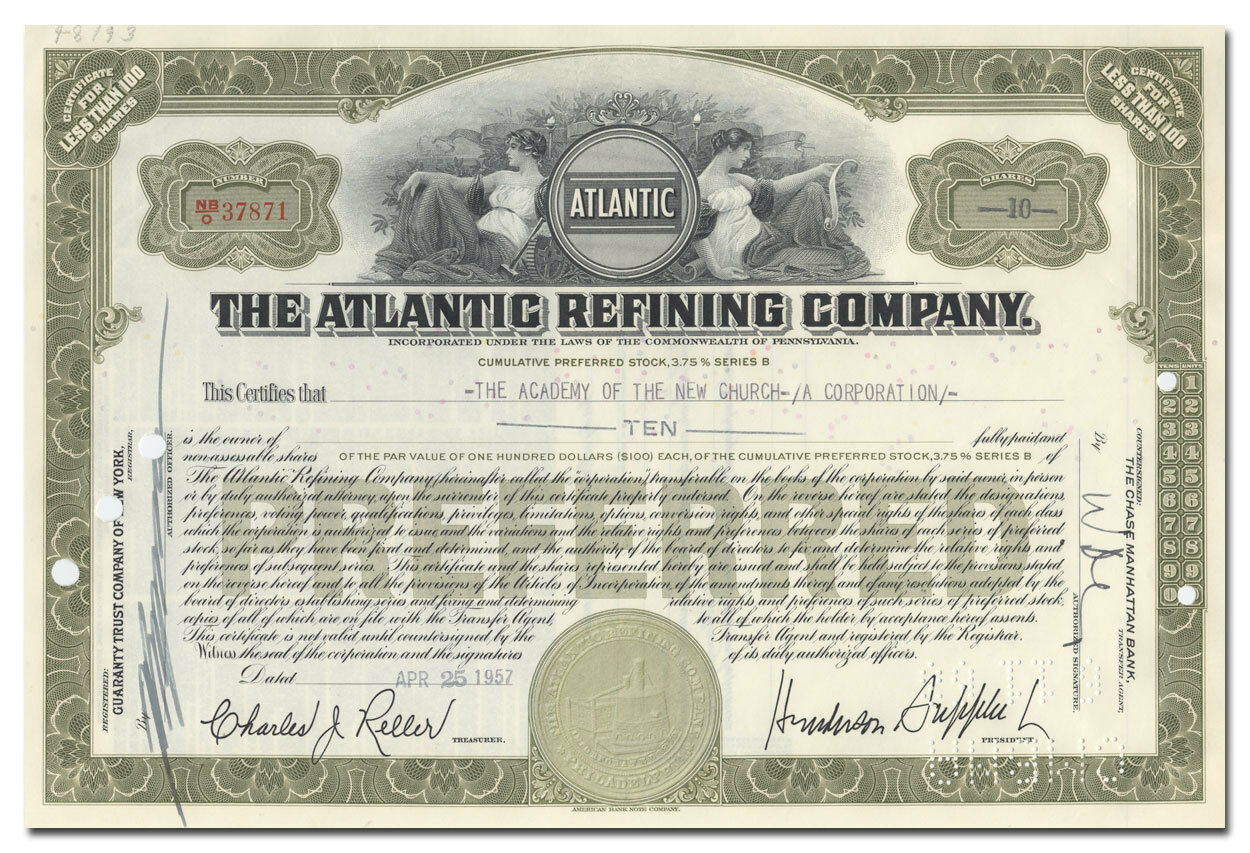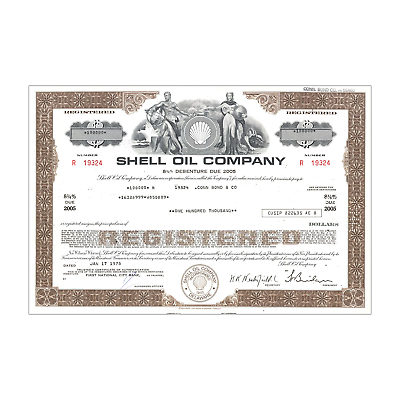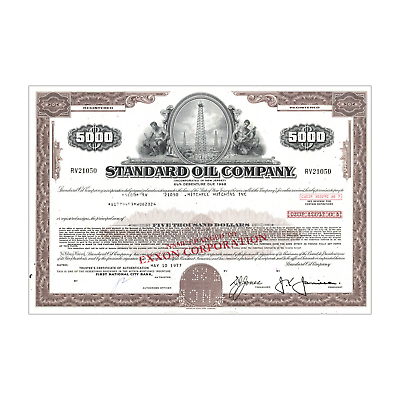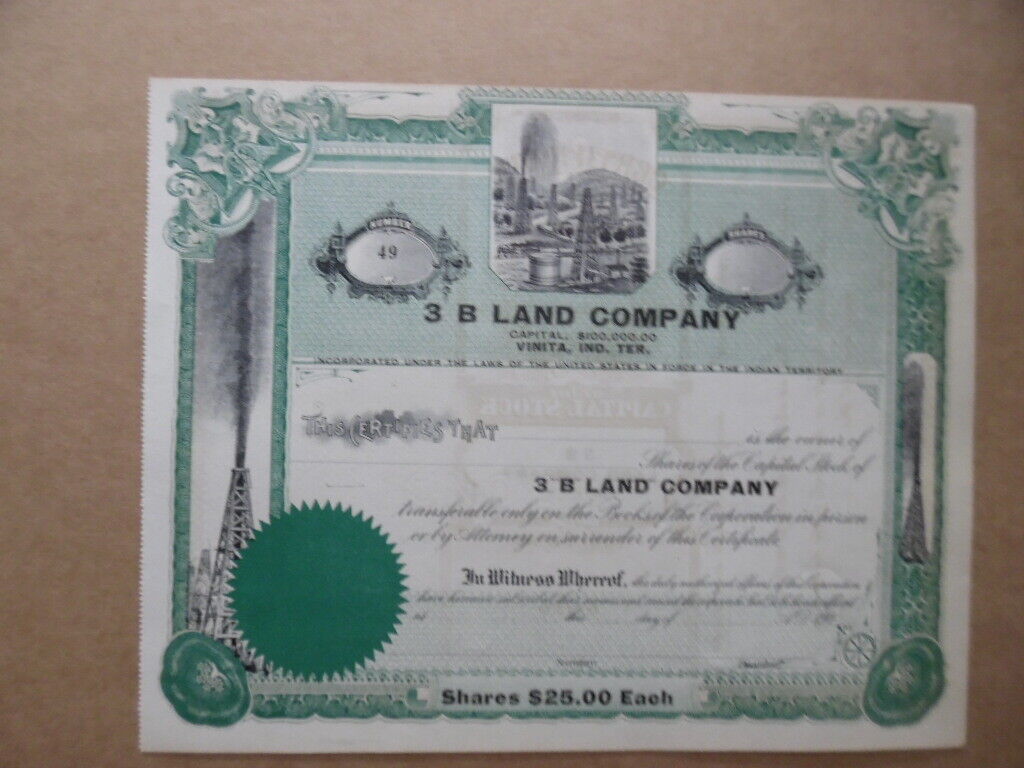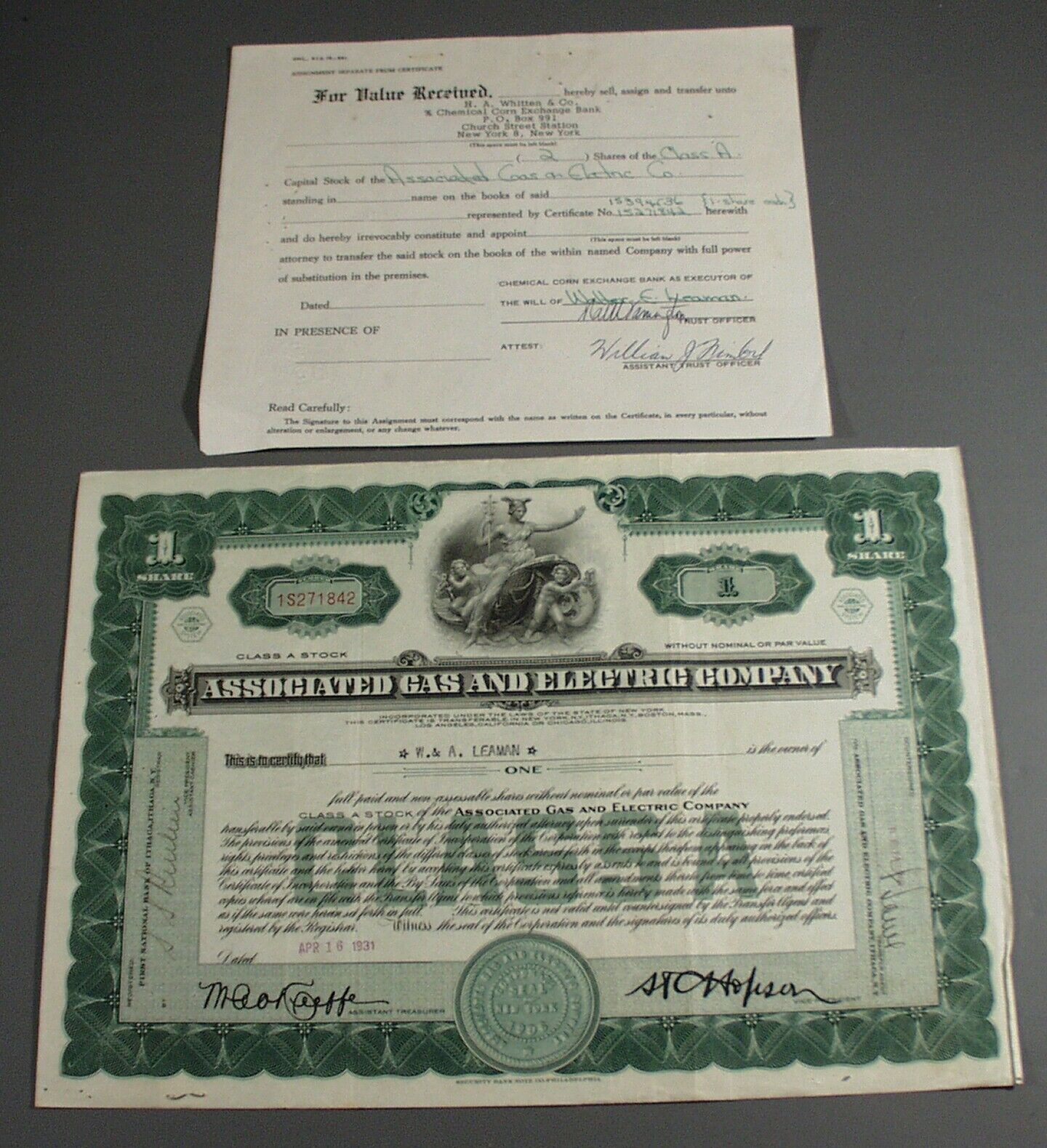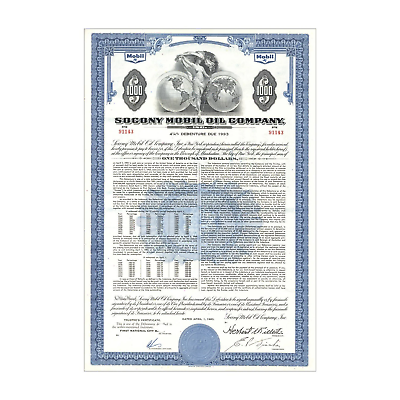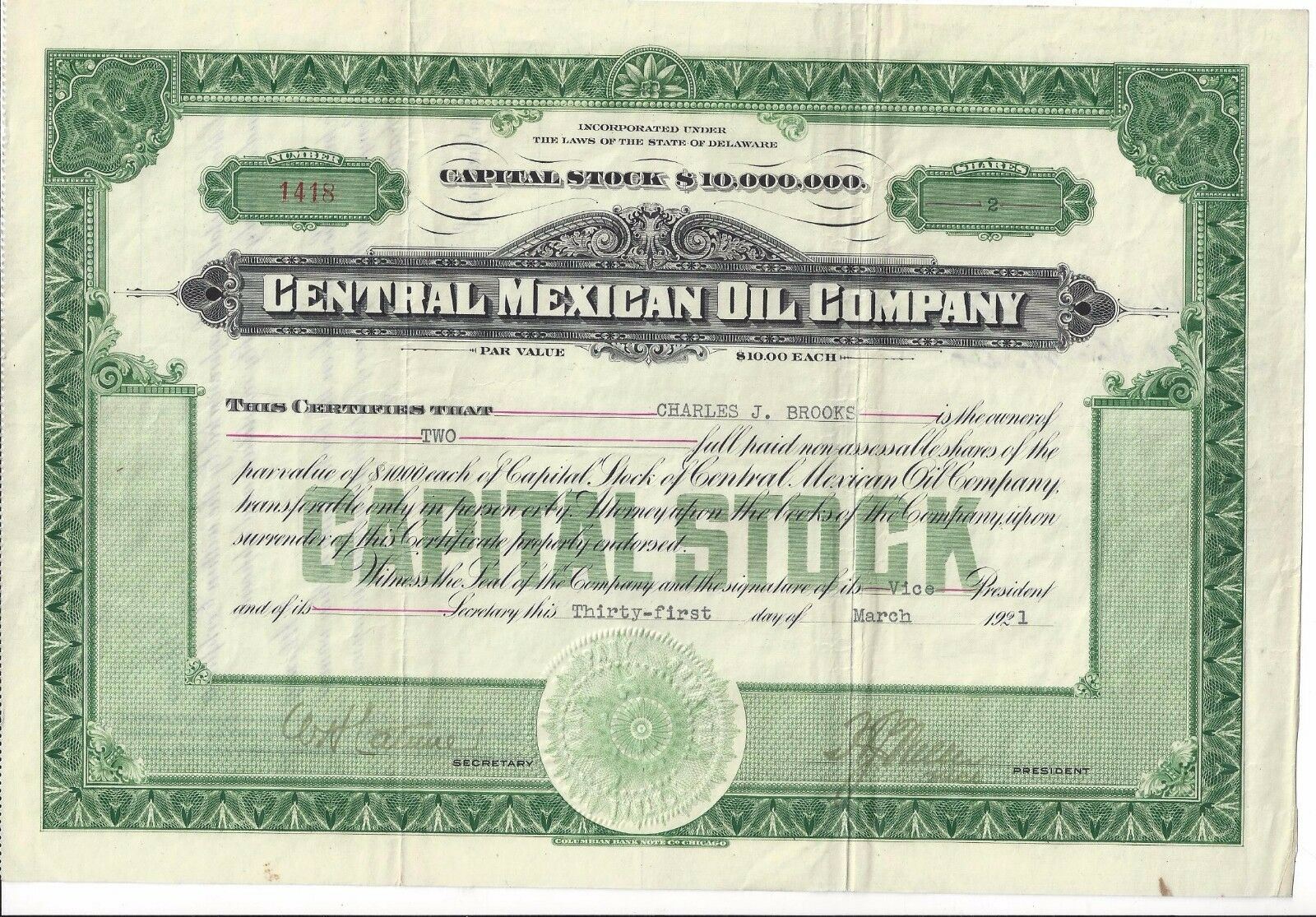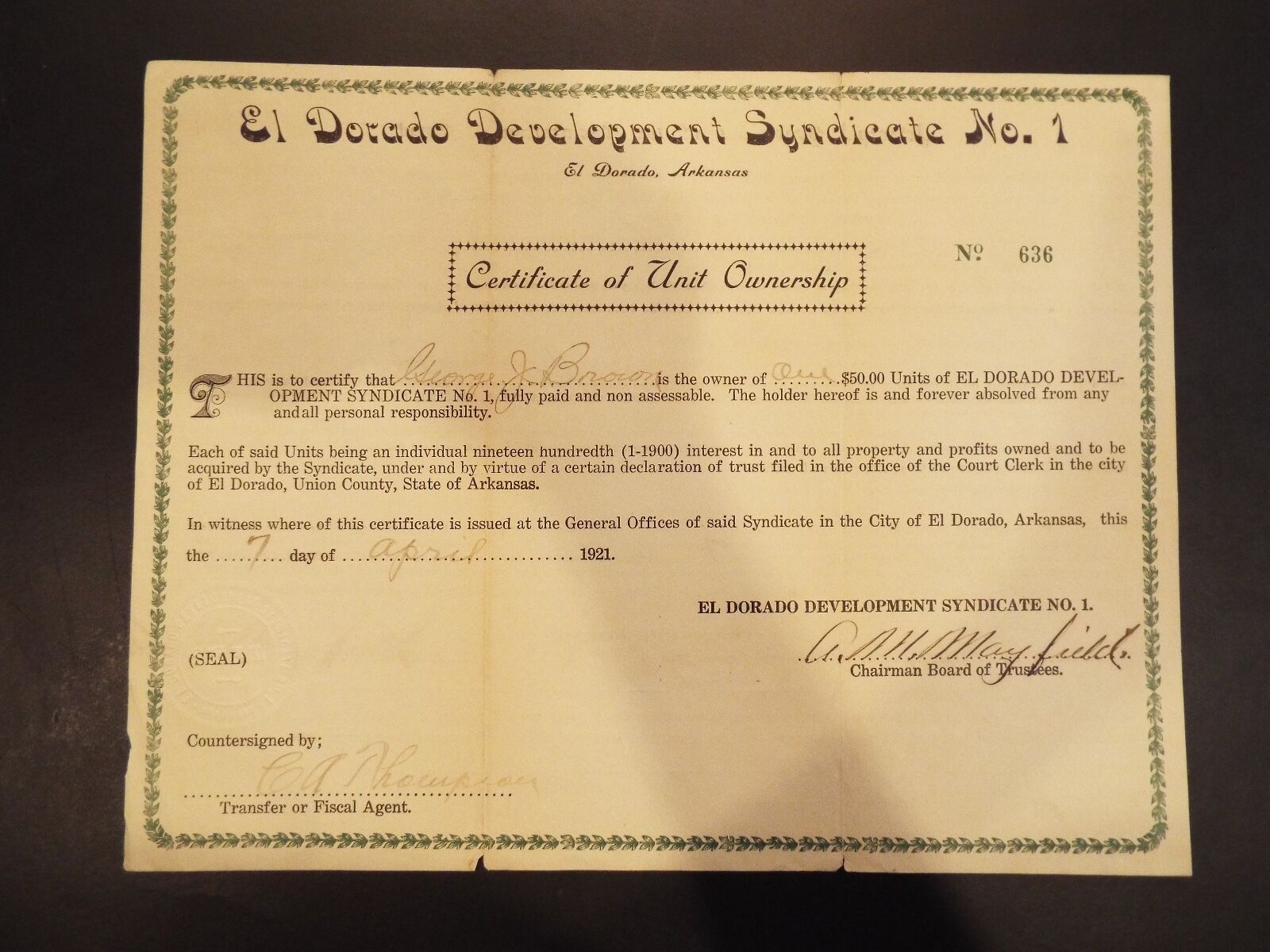-40%
Atlantic Refining Company Stock Certificate
$ 1.58
- Description
- Size Guide
Description
Product DetailsNicely engraved antique stock certificate from the Atlantic Refining Company dating back to the 1950's and 1960's. This document, which contains the printed signatures of the company President and Treasurer, was printed by the American Bank Note Company, and measures approximately 12" (w) by 8" (h).
This certificate's vignette features a pair of female figures flanking the company crest.
Images
The images presented are representative of the piece(s) you will receive. When representative images are presented for one of our offerings, you will receive a certificate in similar condition as the one pictured; however dating, denomination, certificate number and issuance details may vary.
Historical Context
Charles Lockhart and his partners founded the Atlantic Petroleum Storage Company in Philadelphia in 1866. At the time, Atlantic's business was simply to store and ship crude and refined oils. In 1870 the company built a refinery that could process a record 3,000 barrels a day. Only four years later it was sold to John D. Rockefeller's vast Standard Oil Trust, where it remained until 1911 when the Trust was dissolved by a federal court, leaving Atlantic on its own with no crude oil, pipelines or tankers. This prompted Atlantic's concerned president John Wesley Van Dyke to tell his people: "Go find the company some crude," which they did, making significant discoveries in the American Southwest. During the next few decades, Atlantic acquired a fleet of oil tankers, built a network of pipelines, and established a system of service stations throughout the eastern part of the nation.
In 1963 Atlantic purchased the Hondo Oil & Gas Company, a small oil producer in the Western states, from Robert O. Anderson, who took a seat on Atlantic's Board of Directors. Two years later, Anderson was elected chairman. A visionary businessman, Anderson, along with President Thornton F. Bradshaw, guided the company through two significant mergers. The first was with Richfield Oil Corporation. Founded in 1905, Richfield grew quickly into one of the West Coast's leading gasoline marketers, with its own refineries and production properties. Gas wars and financial setbacks pushed Richfield into receivership in the early 1930s. The firm was reorganized in 1936 and once again captured an important share of the gasoline market. In its merger with Atlantic Refining Company on January 3, 1966, Richfield brought along its Alaskan leases and Prudhoe Bay exploration program, providing the new Atlantic Richfield Company with a promising blend of exploration and producing properties. Merger talks heated up again in the late '60s, this time with the Sinclair Oil Corporation, founded by Harry F. Sinclair in 1916. ARCO was attracted by Sinclair's chemical and refining operations as well as its network of crude and product pipelines. The merger was completed in 1969.
In 1968, ARCO and its partner Exxon struck oil at Prudhoe Bay on the North Slope of Alaska, the biggest oil strike ever in the Western Hemisphere. At the time, recoverable reserves were estimated at 9.6 billion barrels, a figure that has since increased to over 13 billion barrels. To prepare for the huge volume of oil that would move through the Trans Alaska Pipeline, ARCO began expansion of its refining and marketing capability on the West Coast, including construction of a new refinery at Ferndale, Washington, and upgrading of the Los Angeles refinery.
